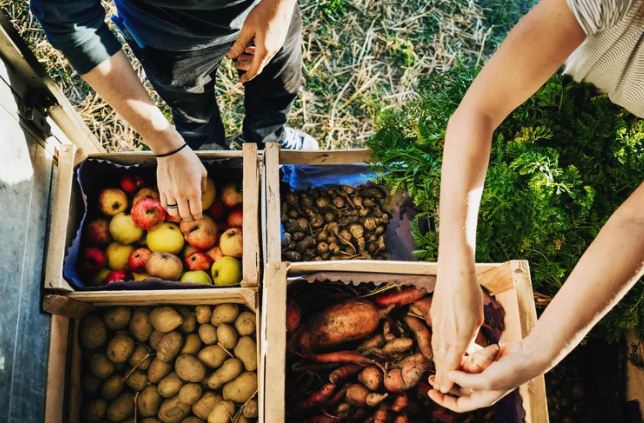In a world where the global food market often dictates what ends up on our plates, the concept of food sovereignty stands as a powerful antidote. Emerging as a socio-political movement, food sovereignty asserts a nation’s right to control its own food systems, from production to distribution. In this article, we delve into the essence of food sovereignty, examining its significance and the ways in which it empowers nations in their culinary pursuits.
Origins and Essence:
The idea of food sovereignty sprouted from the fertile ground of grassroots movements and the struggles of small-scale farmers worldwide. It was formally articulated by La Via Campesina in 1996, responding to the negative impacts of globalization on agriculture. The movement seeks to overturn the global paradigm of corporate-driven, profit-centric agriculture and replace it with a model rooted in local control and self-determination.
Pillars of Food Sovereignty:
Food sovereignty rests upon several foundational principles:
- Local Autonomy: At its core, food sovereignty champions the ability of local communities and nations to make decisions about their food systems, unburdened by external influences.
- Participatory Democracy: It thrives on the belief that those most affected by food systems—farmers, consumers, and indigenous communities—should have a say in shaping food policies.
- Land Reform: Central to food sovereignty is the concept of equitable land distribution, ensuring that small farmers and marginalized groups gain access to resources.
- Sustainable Farming: Embracing ecological and sustainable farming practices is pivotal to food sovereignty, as it ensures the long-term health of ecosystems and communities.
- Fair Trade: The movement advocates for fair prices and fair trade practices, especially benefiting small-scale farmers and agricultural workers.
Global Implications:
Food sovereignty has transcended borders and cultures, resonating with nations seeking to regain control over their food systems. Sri Lanka, with its rich culinary heritage, has been actively participating in this global movement. The nation’s efforts to revive traditional rice varieties are a testament to its commitment to food sovereignty. By promoting native rice strains, Sri Lanka is not only enhancing food security but also preserving its cultural identity.
Across Africa, food sovereignty is empowering smallholder farmers, giving them access to land, seeds, and resources. These initiatives, rooted in self-reliance, contribute not only to food security but also to the alleviation of poverty and the development of rural areas.
Challenges to Overcome:
Despite its noble goals, food sovereignty faces formidable challenges. Multinational corporations and profit-driven trade agreements often prioritize economic interests over local needs. Additionally, the dominance of industrial agriculture and the looming specter of climate change present formidable hurdles on the path to food sovereignty.
Embracing Innovation:
In this age of technological advancement, innovation has a pivotal role to play in advancing food sovereignty. Digital platforms, such as Wedoadz.com, can serve as hubs for knowledge exchange, linking farmers to best practices, markets, and support networks.
Innovations in sustainable agriculture, including organic farming techniques and agroecological practices, align seamlessly with food sovereignty principles. These approaches prioritize local control, environmental stewardship, and community well-being.
Food sovereignty offers a compelling vision for a future where nations regain control of their food destinies. By championing local control, empowering small-scale farmers, and preserving cultural identities through food, it is a pathway towards a more equitable, sustainable, and culturally rich global food landscape. In a world where food systems are increasingly complex, embracing food sovereignty can be the catalyst for a brighter, more nourishing future.
You May Also Like –Russian-Chinese Cultural Tapestry in Future ?


